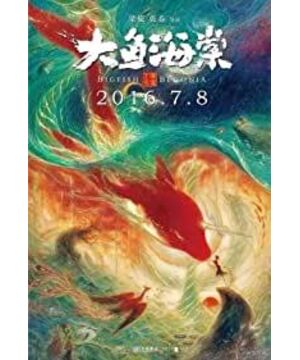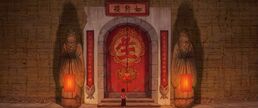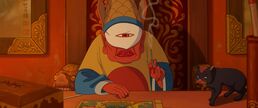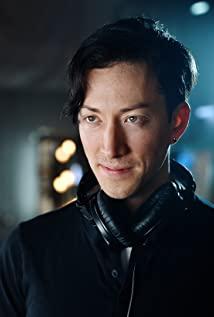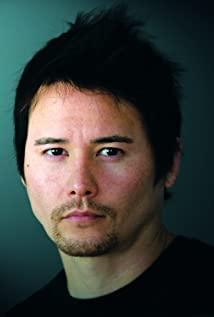Almost a year ago, on July 10, 2015, "The Return of the Great Sage" was officially released, and finally won nearly one billion box office in the mainland Chinese market. The big monkey shocked the whole world, and the World War I conferred the gods - this makes us have higher expectations for the "Big Fish and Begonia" that has been sleeping for twelve years.
This time, how many people remember the flash short film that came out in 2004 to the present? How many people are attracted by the gorgeous and gorgeous posters and trailers? How many people watched it because they heard that it was "beautiful" and "crying miserably"? "Big Fish and Begonia" is such a movie that everyone is looking forward to. One Soybean Oil said that the secret to keeping a movie up to expectations is that it will never be released, so true, but you really would rather not watch it out of fear of disappointment ? In fact, this situation is somewhat similar to the decision of Tsubaki, the "most annoying heroine" in the film.
"Big Fish and Begonia" is inspired by the classics of Chinese culture such as "Shan Hai Jing", "Book of Songs", "Sou Shen Ji" (although this point has also been criticized a lot). "There was a great chun in ancient times, with eight thousand years as spring and eight thousand years as autumn", friends who have watched the film will find that it is actually based on the sentence "Zhuangzi·Xiaoyaoyou", which implies the relationship between the heroine Chun and the hero Qiu. Destiny (more on that later). The opening chapter of "Xiaoyaoyou" "There is a fish in the north, its name is Kun. Kun is so big, I don't know how many thousands of miles it is; when it turns into a bird, its name is Peng" is the image description of the protagonist Kun, that is a The externalization of a life of absolute freedom, the ultimate freedom of "the one who is 90,000 miles away" is the innate nature of the big fish. The ancients wrote this desire for freedom into poems and songs. We drew it into paintings and made animations to tell a simple but fateful story.
It is said that Chinese people have no faith, but in fact, we ordinary people believe in fate the most.
What is the sense of fate? Buddhism believes that all people in the past have life, and they have been reincarnated, so it is called fate. Since ancient times, the concept of past life and present life has been rooted in the traditional culture of our Chinese culture, which is very strong and solid. Among the few excellent domestic films, the core of the story full of fate is indispensable. Shortly after "Little Tadpole" found his mother, he also grew into a mother's appearance, and then gave birth to new little tadpoles; After learning about her life experience, Chen Xiang in "Lamp" and Bao Lian Lan became one, defeated Erlang God, split Huashan Mountain and rescued her mother; Jiang Liu'er in "The Return of the Great Sage" accumulated a full nine generations of merit before changing. Lai Dasheng said "Master, don't drive me away". The origin of this worldview that everyone has been accustomed to for a long time is probably people's inability to face nature and their inability to grasp their own destiny. In the story of "Big Fish and Begonia", the heroine Chun, in order to save a life who was kind to her, brought a devastating disaster to her homeland, and suffered a person who was infatuated with her, but her lost life was extended. So it's hard to judge whether her move is right or wrong, but going against the sky is to be punished the most severely. Many friends who follow "Big Fish and Begonia" worry that this is a tragedy, but if it was you, shouldn't you not start at all because you know the outcome of the doomed tragedy? The protagonists of "Big Fish and Begonia" are reckless, their efforts are unrewarded, and the human soul is clean. This is also vividly expressed through the beautiful and pure pictures - when a body is in the ocean When a big fish is playing alone in the water, when a begonia tree grows and blooms on the vast land, there is not even a trace of other impurities in the picture.
The origin concept of this story was stated in the original preview of "Big Fish and Begonia", "4.5 billion years ago, there was only a vast ocean and a group of ancient big fish on this planet. From birth, they have been Never forget..." Every human being is a huge fish on the bottom of the sea, and a person's life is like crossing the sea. Life is a journey, how many reincarnations we have waited before we have the opportunity to enjoy this journey, in this short life, we will lose everything in the end.
[The following content contains the ultimate spoiler, friends who have not watched the film can choose to skip]
Tsubaki grew up in a world called "Others", where the sky is the sea of mankind. On the last day of Chunhua's journey to the world as a big fish, she was caught in a fishing net and couldn't escape. As a human being, Kun was swept into the seabed whirlpool in the process of rescuing Chun, and died in the ocean. Since then, the story of "Big Fish and Begonia" has really begun. It seems to be a story of a girl repaying her kindness. Chun made an exchange with the spirit woman in order to find Kun's life and gave her most precious things. She chose self-sacrifice to fulfill Tsubaki's great love. For this reason, the world of "other people" is torn apart, and the family is destroyed...
Was it Tsubaki who brought disaster to the home? They all say she is selfish and stupid. Should she abandon her human beings? Don't the legendary "others" who control the laws of the human world have no compassion? Has Qiu's willful and wishful thinking ever asked Chun for his opinion? In the grand scheme of things, there is a certainty in all of this. People's choices bring disasters, but disasters also test the value of human existence. Or from another perspective, the world of "others" and the human world are parallel, and Tsubaki is Kun in another parallel world, so Tsubaki's escape and Kun's resurrection can only be life-threatening, so their encounter Not tolerated by the world, their fates can be connected for no reason and contrary to common sense; while Chun and Qiu are different forms in the same time rotation, every eight thousand years, Chun becomes Qiu, Qiu becomes Chun, The two were born from the same root, and they complement each other; in the end, the three of them are a community of destiny, inseparable, intertwined and impermanent, and endless.
Maybe you think this interpretation is a bit too magical, but Director Ang Lee once said after reading the movie reviews of "The Fantastic Drift of Pi" by fans, there is no so-called "excessive interpretation", and some movies are made for people who like to think The audience sees it, no matter how to interpret it. Under this interpretation, Chun's reluctance to give up to Kun and Kun's memory of Chun can be regarded as a kind of obsession with many impermanence in life, and the final encounter symbolizes the achievement of a compromised balance; Qiu's attachment to Chun is like a person's love for the past and the longing for the future. It is unconditional companionship and waiting; Qiu breaks through the gate of Haitian and sends Kun away, which reflects the breakthrough of self-cognition. and let go. In the cycle of reincarnation, the only things that can transcend race, gender, region, time, and even life and death are courage and love.
Borrowing the mouth of the old Chun, he eloquently said, "You might as well be bold, love someone, climb a mountain, and chase a dream. Yes, you might as well be bold, I don't know many things, and I don't have answers to many questions, but I I believe that God gave us life, it must be for us to create miracles." Seeing this, I burst into tears. No matter what the last film looks like in everyone's heart, its worldview is incomplete, whether you recognize the values it conveys, whether the feelings in it are the love you are looking forward to, it provides us with a basis for discussion, let us watch Think about something and settle some thoughts that have been hidden in your heart for a long time. If you like it, you cry; if you are angry, you stand in line; if you are disappointed, you run around to tell each other, in fact, you should be grateful for this encounter.
A while ago, the popular Japanese drama "Republished" described a famous cartoonist who decided to seal his pen because he received bad reviews, not because of his glass heart, but because "The thing that hit me the most was that I always hoped to give readers to readers through comics. One of the concepts conveyed is that people are noble and kind, and gentleness is the source of strength, but it seems that it has not been conveyed at all." And the director of "Big Fish and Begonia" doesn't have to worry. In my opinion, he conveyed his thoughts very well.
What's more, one thing, after 12 years of persistence, will always be the same, the whole zodiac is reincarnated, which in itself is a very fateful thing.
View more about Big Fish & Begonia reviews


